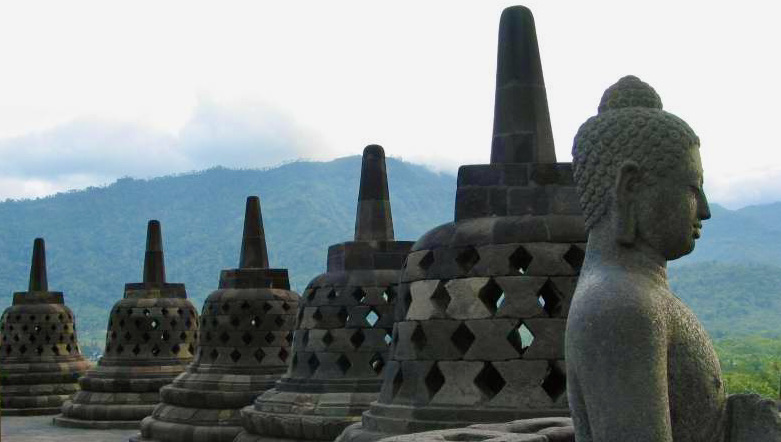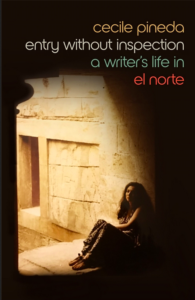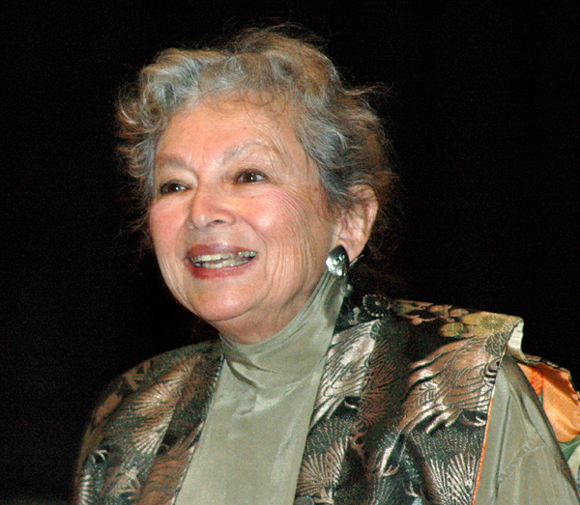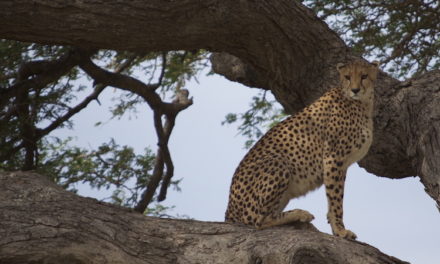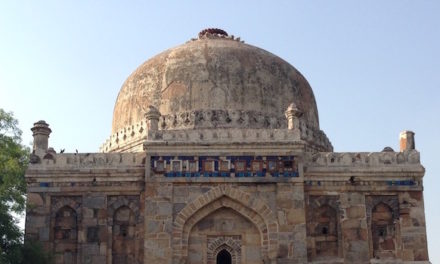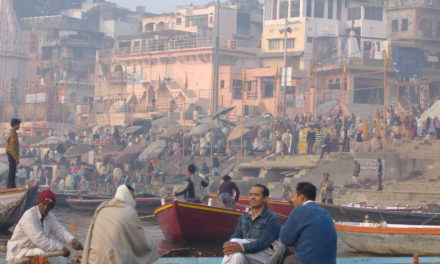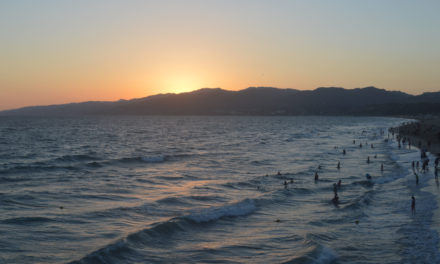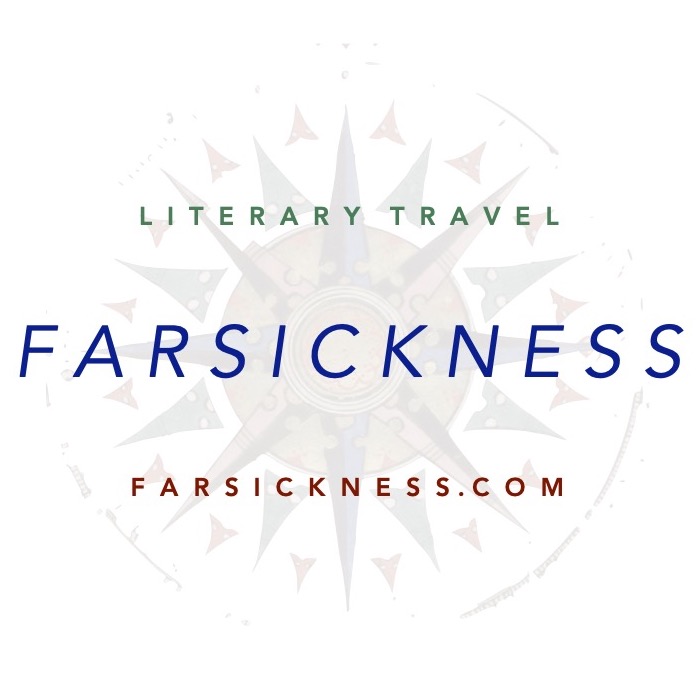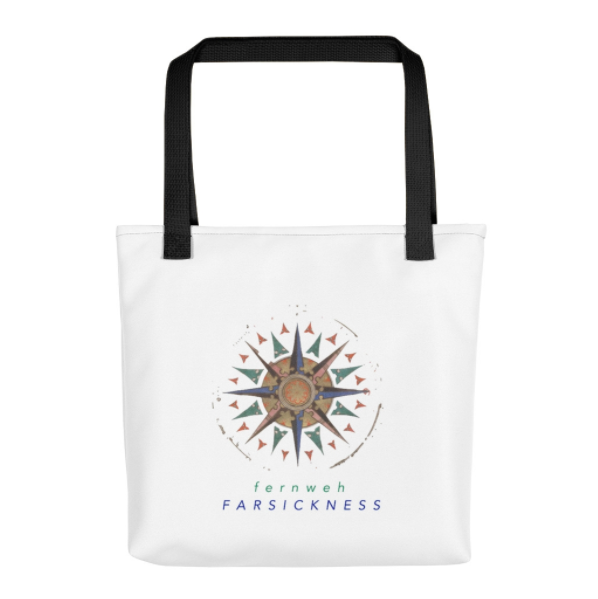Four Questions on Farsickness is an interview series with creative writers for whom place is essential to their work. Each writer answers the same four questions—and featured here is award-winning novelist, nonfiction writer, and theater founder and director Cecile Pineda, whose recent memoir, Entry Without Inspection: A Writer’s Life in El Norte, was published by the University of Georgia Press.
1. Share a little about where you’re from. When you were growing up, what place—real or imagined—most fascinated you, and why?
I grew up in New York cocooned in a state of suspension, of being neither here nor there, because my father remained tight–lipped about where we came from or who our people really were. He never discussed his family, he remained mute about his mother (my grandmother). He even omitted telling me that his father had risen from extremely humble indigenous origins to become a cabinet minster and secretary of the treasury of the Government of Mexico. Or that his grandmother (my great-grandmother) to support both her sons had had to take in washing. I discovered I had an uncle and cousins only at the age of the ten. I suspect my father’s Harvard education (where he studied the philology of Romance languages, graduating in 1919) may have turned him away from his Mexican roots and that from that time on, in every aspect of his life he became the conservative I knew.
If there was one aspect that fascinated me in early childhood, it was accompanying my mother to her Protestant Church on Riverside Drive where I loved the music and where I once heard Paul Robeson sing. The deep magic of his voice never left me.
2. What travel has been a particular inspiration to your work?
Although my travel throughout Europe had been extensive, I was over 50 when I visited Borobudur on Java. On the plane coming home, words starting coming in a rush, so fast I was hardly able to keep up. By the time I landed I had both the beginning and the resolution of my second novel, Frieze. Whereas I didn’t quite know how to end Face, my debut novel, (never having attended a creative writing program, I called it “ending material”) for the subsequent novel, Frieze, I found all I had to do was to make the remaining 118 sections as I paralleled the life of Guatama Buddha up to the preaching of first sermon, which adorns the first gallery of Borobudur. I found I was “channeling” a stone carver of the 9th century as he made his way from India, where he was first apprenticed, to Java, in an exchange (much as baseball players are traded today) that pitted the gift of one Indian potentate to another in what came to be known as Java.
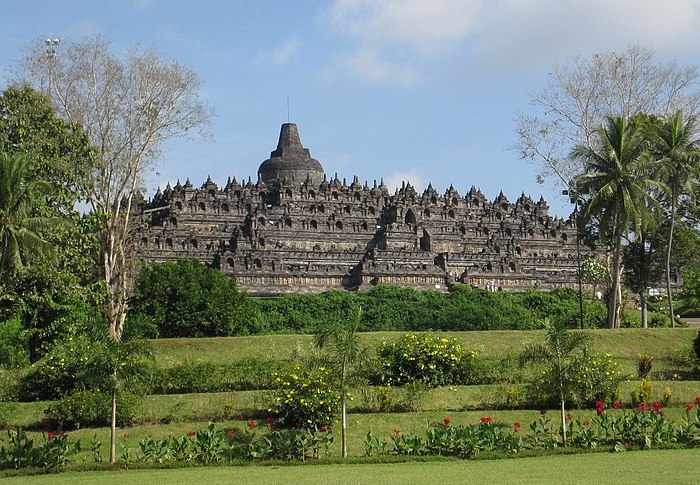
Borobudur in Java, Indonesia (Credit: Anandajati, Wikimedia Commons)
Perhaps foreshadowing Bruce Chatwin’s own adventures, he tells of an uncle who never passed up a far horizon when it called. Travelling in India, my Frieze advance allowed me to stay in the dubious luxury of run-down pensions. It allowed me two months, roaming 3000 miles filled with untold wonders of carvings, and architecture prefiguring Europe’s by 2000 years and more in thousands of towns I visited.
I wound up in Rajasthan travelling in an ancient Austin of ‘55 vintage in the Thar desert where the distances seemed so vast, I had my heart in my mouth wondering it we’d ever make it to the next gasoline pump. On the way to Mt. Abu (where Jain shrines are located, anywhere from 8th to 10th centuries old, the members are routinely replaced) I met my nemesis at last. The Austin failed. It had to be pushed up the mountain. Unwilling to let the driver conduct his “mem sahib” in state, I got out and pushed while he steered.
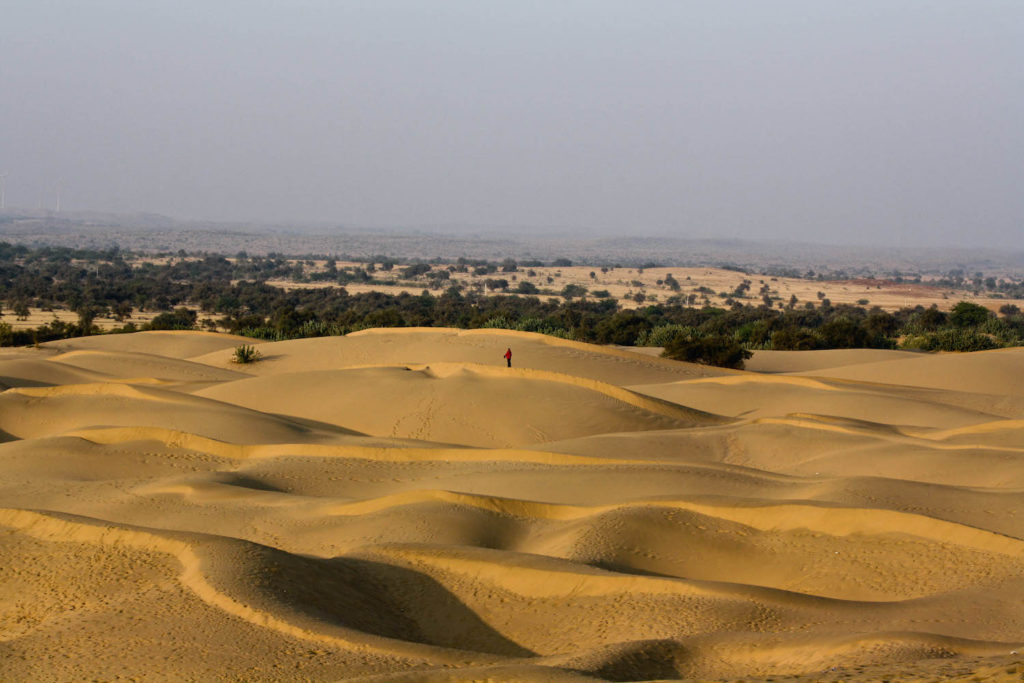
Thar Desert in Rajasthan, India (Credit: Sushmita Balasubramani, Wikimedia Commons)
3. Where do you “escape to” to recharge creativity?
I do not escape. For the past ten years, I have traveled to Nevada yearly under the aegis of Code Pink, protesting drone warfare at Creech AFB. But I also take advantage of the desert and its great beauty, not just to protest the criminal behavior of my country, but to meditate on the things that really matter.
4. Where would you most like to travel to next?
Now that I have reached the hoary age of 90, my days of dreaming up bucket lists are over. I anticipate that my next journey will be by coach and six.
Cecile Pineda is the author of six published novels: The Love Queen of the Amazon, written with the assistance of an NEA Fiction Fellowship, and named Notable Book of the Year by the New York Times; Frieze; and Face, which won the Gold Medal from the Commonwealth Club of California, a First Fiction Award from the American Academy and Institute of Arts & Letters, an American Book Award nomination, and a 2014 Neustadt Prize nomination for international fiction. Bardo99, a mononovel which addresses the experience of the 20th century, Redoubt, a meditation on gender, Fishlight: a Dream of Childhood, and three works of non-fiction, Devil’s Tango: How I Learned the Fukushima Step by Step, a criminal exposé of the nuclear industry; Apology to a Whale: Words to Mend a World, an exploration of language at the intersection of archeology and comparative linguistics as the root of the world’s present power alignments (and later confirmed genetically by David Reich’s book, Who We Are and Where We Come From), and Three Tides: Writing at the Edge of Being, a memoir highlighting the experience of Hurricane Katrina. Her archive forms part of the Special Collections Library of Stanford University. Of her fiction, John Coetzee has written: “Cecile Pineda is a novelist of the utmost artistic integrity.” Prior to her work as a writer, Pineda founded and directed her own experimental theater company.
Her works are all available at Independent Publishers Group and from the University of Georgia Press at Athens. Visit her web page at www.cecilepineda.com.
[Header image (Borobudur) credit: Bennylin at Wikimedia Commons.]

